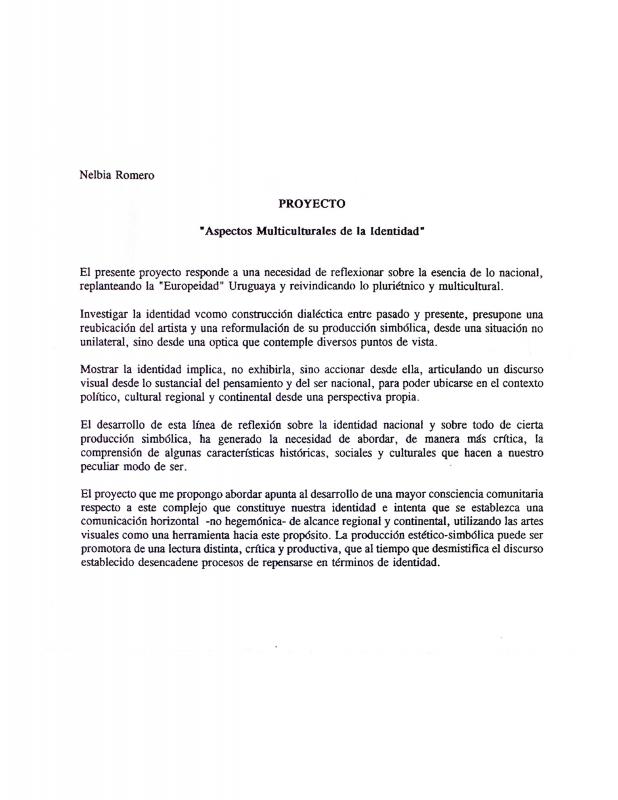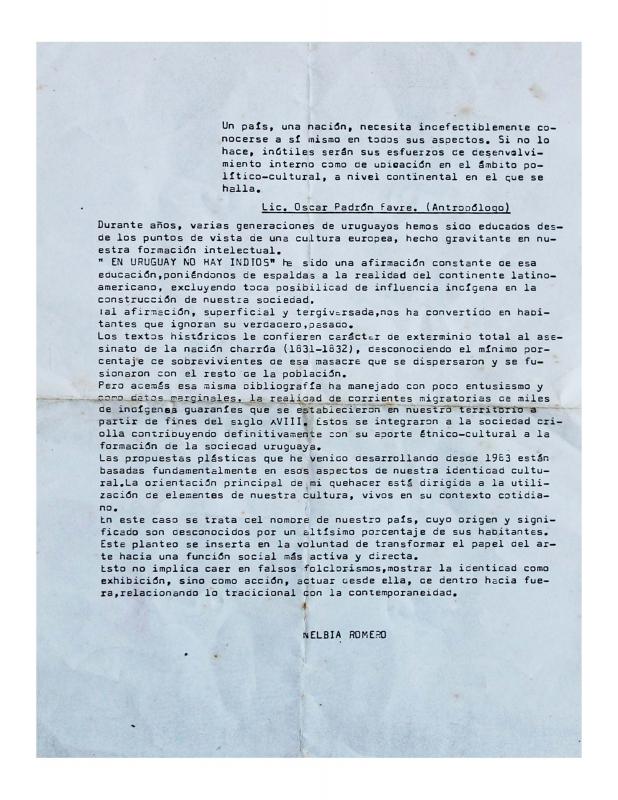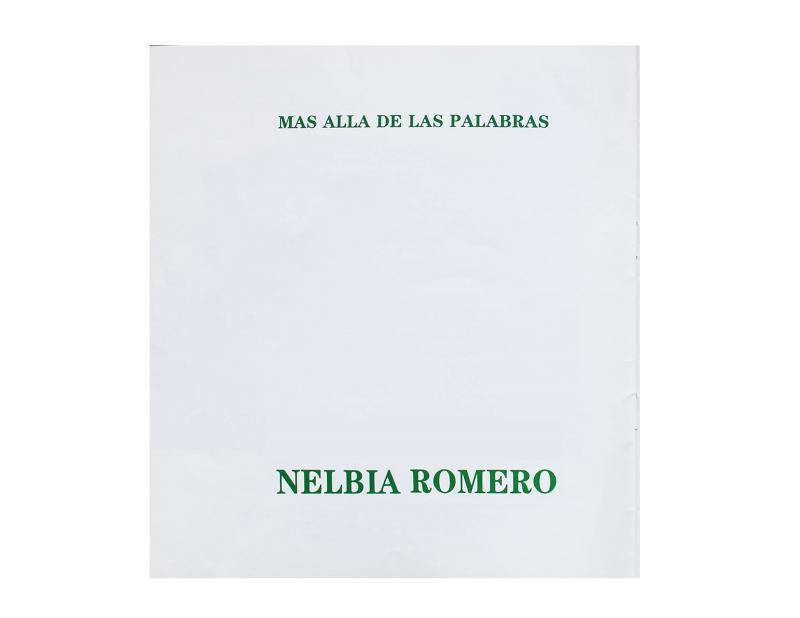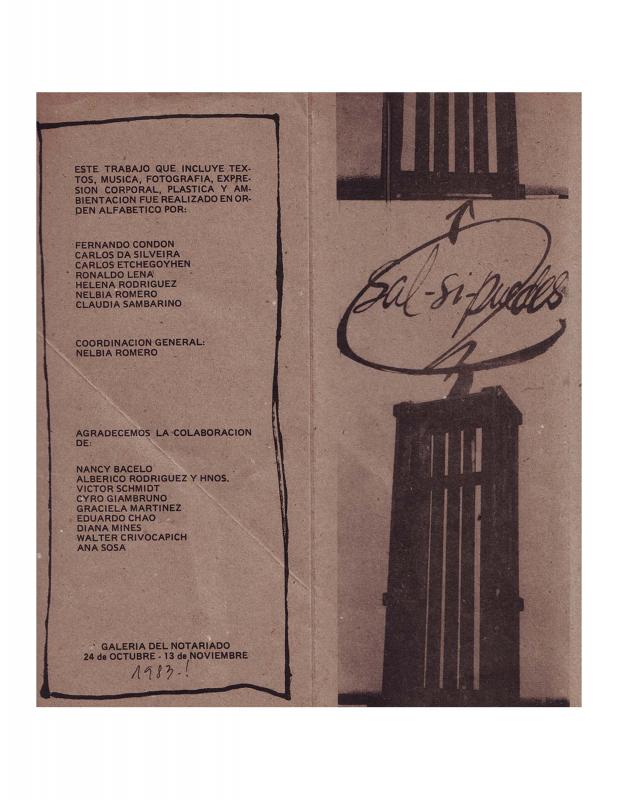The art historian and critic Alicia Haber (b. 1946) analyzed the exhibition Bye Bye Yaugurú by Nelbia Romero (1938–2015) [on this subject, see in the ICAA digital archive the text “Aspectos multiculturales de la identidad” (doc. no. 1241419)]. It was organized in 1995 and was linked to conceptual aspects of the artistic ideas and concerns of Uruguayan society, which had recently concluded the dictatorial period in 1984. This period brought about a crisis of ideas that gave rise to the intense theoretical production of historians, sociologists, and educators. This exhibition, in some ways, attempted to make these ideas accountable. According to Haber, the work environment Romero outlines starts with the irony of her title, Bye Bye Yaugurú, a farewell in English to a country “renamed” and written backwards. This is a critical gaze toward a society where the traditional identity-based collective at stake does not seem to have been recognized. The atmosphere, outlined by Romero, redistributes the elements that appeal to collective myths (football triumphs, phrases and patriotic symbols), those that no longer account for an ideal country. They are, in contrast, historical ghosts that visit in moments of collective suffering and of a new diaspora, questions about political rearrangements that include other possible maps in the future.
[For further reading, please refer to the ICAA digital archive for the following texts: “Más allá de las palabras,” (doc. no. 1238885) by Nelbia Romero; “Al encuentro de las culturas subyacentes,” (doc. no. 1238901) by Alicia Haber; and “Sal-si-puedes” (unsigned) (doc. no. 1250634)].




